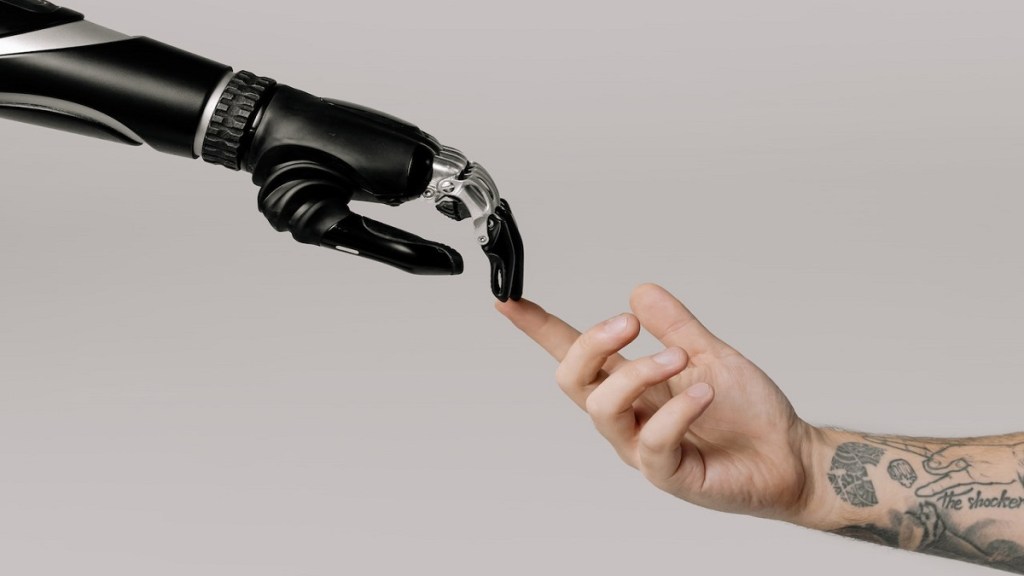By Aditya Malik
In the decade of unprecedented technological advancement, the application of artificial intelligence (AI) in various industries has sparked both optimism and apprehension – and the field of hiring and recruitment is no exception. AI has undeniably demonstrated its proficiency in the realm of hiring. From the initial task of sorting resumes and screening applicants based on the information at hand, AI adeptly handles mundane responsibilities with perfection. A popular job seeker platform – Resume Builder – survey revealed that almost 43% of recruiters aim to integrate AI for interviews by 2024.
However, while emerging technologies are definitely contributing towards enhanced efficiency, objectivity, and potentially a better match between candidates and job positions – one cannot eliminate the fact that the hiring process significantly relies on human interventions as it navigates through an individual, their motivations, emotions, as well as feelings. The true essence of the hiring process starts only after the ‘document’ work or groundwork is taken care of – i.e., when candidates start appearing for interviews. Interviews offer the HR or hiring managers the unique opportunity to reflect into a potential candidate and gain deeper insights into their assessing factors such as confidence, language proficiency, mental acuity, tone of voice, and, notably, shifts in mood in response to varying topics of discussion. These features are inherently “human,” and they demand human intervention that technology, in its current form, cannot fully grasp.
The Potential of AI for Job Seekers
AI technology covers a range of computer tools that imitate human abilities, such as decision-making, pattern recognition, understanding visuals and speech, and translating languages. In the field of intelligence, there are specific algorithms that focus on the hiring process. Earlier, companies used technological methods like newspaper ads, referrals, and recruitment agencies to find new employees. However, with the rise of information technology, recruitment processes have become more efficient through platforms and databases. These tools enable companies to quickly connect candidates with job openings and make it easier for human resources teams to find the fit for their organization.
In addition to this, traditionally, hiring has largely revolved around hard skills and qualifications, which undoubtedly are essential, but are not always sufficient indicators of a candidate’s suitability for a position. The advent of AI however has significantly transformed this approach. If assembled correctly, these tools have the potential to decipher the deeper understanding of the role and predict how the role might change over time and whether the particular candidate is suited for the role or if there is a necessity to create a new role based on actual functionality.
Another significant challenge in hiring has also been the potential for candidates to “game the system.” Overprepared applicants can come across as perfect matches on paper, however, tend to fail when it comes to delivering results once they join an organisation. AI has the potential to address this issue by digging through the superficial layer of candidates and identifying those who genuinely align with the company’s requirements, over those who know how to pass standardised assessments or interviews.
AI Versus Human-Based Hiring
A survey report titled Applicant Tracking System (ATS) Usage by Job Scan revealed that 487 out of Fortune 500 companies use Application Tracking Systems. These systems efficiently filter resumes based on keywords, experience, education, and other criteria, streamlining the selection process. AI will have a major role in finding the best candidates in competitive fields.
However, another report ( byMint + Shine.com called ‘Talent insights’) highlighted that approximately 58.1% of candidates preferred connecting with a human HR professional for initial job-related queries, while 38% were open to a combination of human and AI interactions. Only 3% were comfortable with exclusively AI interactions – thus implying that while companies recognize AI’s value for recruiters, overall, candidates see human input as crucial for nuanced judgement and building relationships. More reliance on AI without human interaction can create a sense of disconnection for the candidates.
Today’s AI-driven hiring platforms exemplify how AI is employed to screen and pair candidates with compatible companies. Major corporations like Amazon, PayPal, Google, and Uber leverage various AI tools that employ AI algorithms to assess and identify candidates who align with a company’s requirements and culture. But there are no accounts of a balanced “AI-Human” approach to address the emotional aspects that are easily neglected by the usage of “Purely AI” tools. AI systems can occasionally err or exhibit biases, thus bringing in the need for human supervision for ethical considerations. Relying solely on AI outputs without human oversight can lead to errors and misinterpretations, especially when data protection is overlooked in haste to implement. Thus, it is crucial to remember that recruitment AI tools are not magical solutions but rather critical aids for effective business operations – provided they’re used judiciously and it is imperative to maintain a balance between human expertise and harnessing AI capabilities. Recruiters and HRTech curators must start to realise that creating a positive hiring experience is as important as creating a technologically advanced one; that can only be possible with an optimal dose of human intervention.
In conclusion, the ever-evolving nature of sectors across ecosystems requires a deeper integration of technology to stay competitive, and in hiring, AI serves as a tool that can support human interventions to make the process more streamlined. While Embracing AI and leveraging data can substantially elevate the hiring experience for professionals, rendering it a valuable pursuit, however, we are still far from seeing AI function independently. Humans will continue to take an active role in hiring decisions; only by striking a balance between automation and human involvement can recruiters reap the benefits of integrating AI into their processes.
The author is founder, ValueMatrix.ai










